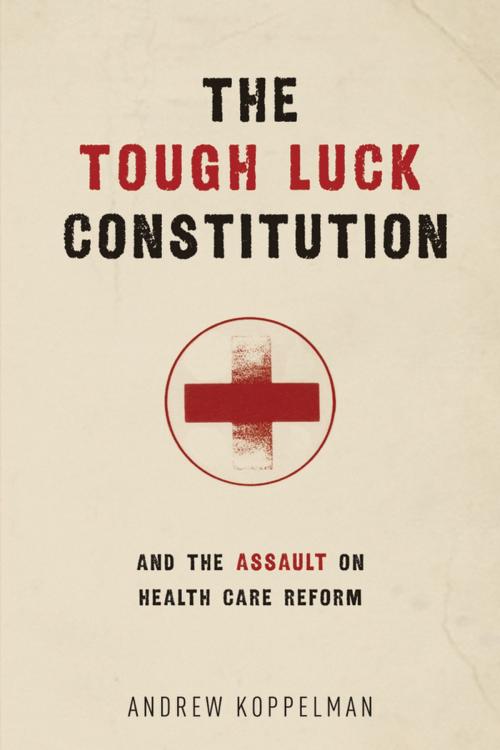The Tough Luck Constitution and the Assault on Health Care Reform
Nonfiction, Reference & Language, Law, Health, Constitutional, Social & Cultural Studies, Political Science| Author: | Andrew Koppelman | ISBN: | 9780199970049 |
| Publisher: | Oxford University Press | Publication: | February 22, 2013 |
| Imprint: | Oxford University Press | Language: | English |
| Author: | Andrew Koppelman |
| ISBN: | 9780199970049 |
| Publisher: | Oxford University Press |
| Publication: | February 22, 2013 |
| Imprint: | Oxford University Press |
| Language: | English |
Chief Justice John Roberts stunned the nation by upholding the Affordable Care Act--more commonly known as Obamacare. But legal experts observed that the decision might prove a strategic defeat for progressives. Roberts grounded his decision on Congress's power to tax. He dismissed the claim that it is allowed under the Constitution's commerce clause, which has been the basis of virtually all federal regulation--now thrown in doubt. In The Tough Luck Constitution and the Assault on Health Care Reform, Andrew Koppelman explains how the Court's conservatives embraced the arguments of a fringe libertarian legal movement bent on eviscerating the modern social welfare state. They instead advocate what Koppelman calls a "tough luck" philosophy: if you fall on hard times, too bad for you. He argues that the rule they proposed--that the government can't make citizens buy things--has nothing to do with the Constitution, and that it is in fact useless to stop real abuses of power, as it was tailor-made to block this one law after its opponents had lost in the legislature. He goes on to dismantle the high court's construction of the commerce clause, arguing that it almost crippled America's ability to reverse rising health-care costs and shrinking access. Koppelman also places the Affordable Care Act within a broader historical context. The Constitution was written to increase central power, he notes, after the failure of the Articles of Confederation. The Supreme Court's previous limitations on Congressional power have proved unfortunate: it has struck down anti-lynching laws, civil-rights protections, and declared that child-labor laws would end "all freedom of commerce, and . . . our system of government [would] be practically destroyed." Both somehow survived after the court revisited these precedents. Koppelman notes that the arguments used against Obamacare are radically new--not based on established constitutional principles. Ranging from early constitutional history to potential consequences, this is the definitive postmortem of this landmark case.
Chief Justice John Roberts stunned the nation by upholding the Affordable Care Act--more commonly known as Obamacare. But legal experts observed that the decision might prove a strategic defeat for progressives. Roberts grounded his decision on Congress's power to tax. He dismissed the claim that it is allowed under the Constitution's commerce clause, which has been the basis of virtually all federal regulation--now thrown in doubt. In The Tough Luck Constitution and the Assault on Health Care Reform, Andrew Koppelman explains how the Court's conservatives embraced the arguments of a fringe libertarian legal movement bent on eviscerating the modern social welfare state. They instead advocate what Koppelman calls a "tough luck" philosophy: if you fall on hard times, too bad for you. He argues that the rule they proposed--that the government can't make citizens buy things--has nothing to do with the Constitution, and that it is in fact useless to stop real abuses of power, as it was tailor-made to block this one law after its opponents had lost in the legislature. He goes on to dismantle the high court's construction of the commerce clause, arguing that it almost crippled America's ability to reverse rising health-care costs and shrinking access. Koppelman also places the Affordable Care Act within a broader historical context. The Constitution was written to increase central power, he notes, after the failure of the Articles of Confederation. The Supreme Court's previous limitations on Congressional power have proved unfortunate: it has struck down anti-lynching laws, civil-rights protections, and declared that child-labor laws would end "all freedom of commerce, and . . . our system of government [would] be practically destroyed." Both somehow survived after the court revisited these precedents. Koppelman notes that the arguments used against Obamacare are radically new--not based on established constitutional principles. Ranging from early constitutional history to potential consequences, this is the definitive postmortem of this landmark case.















